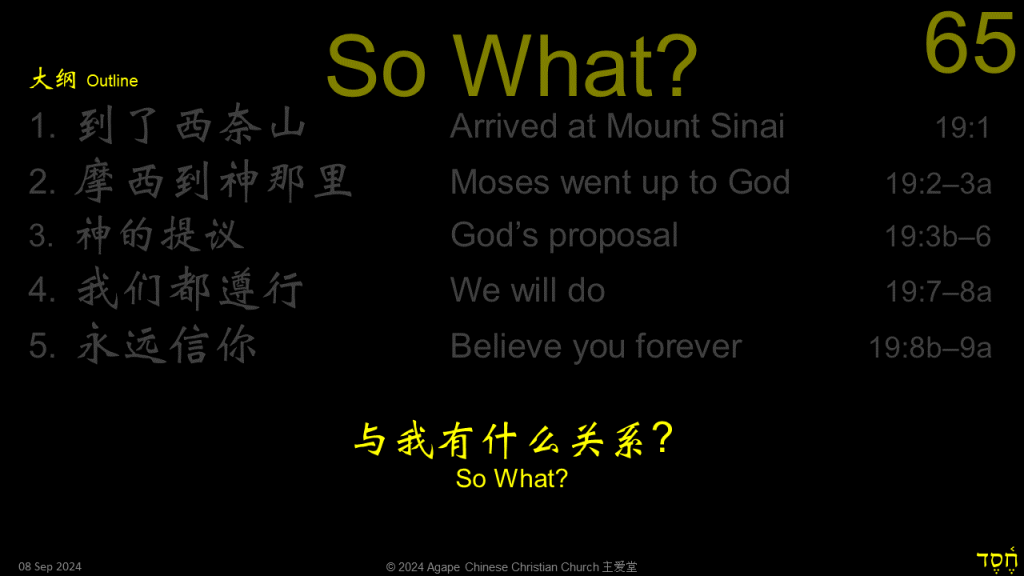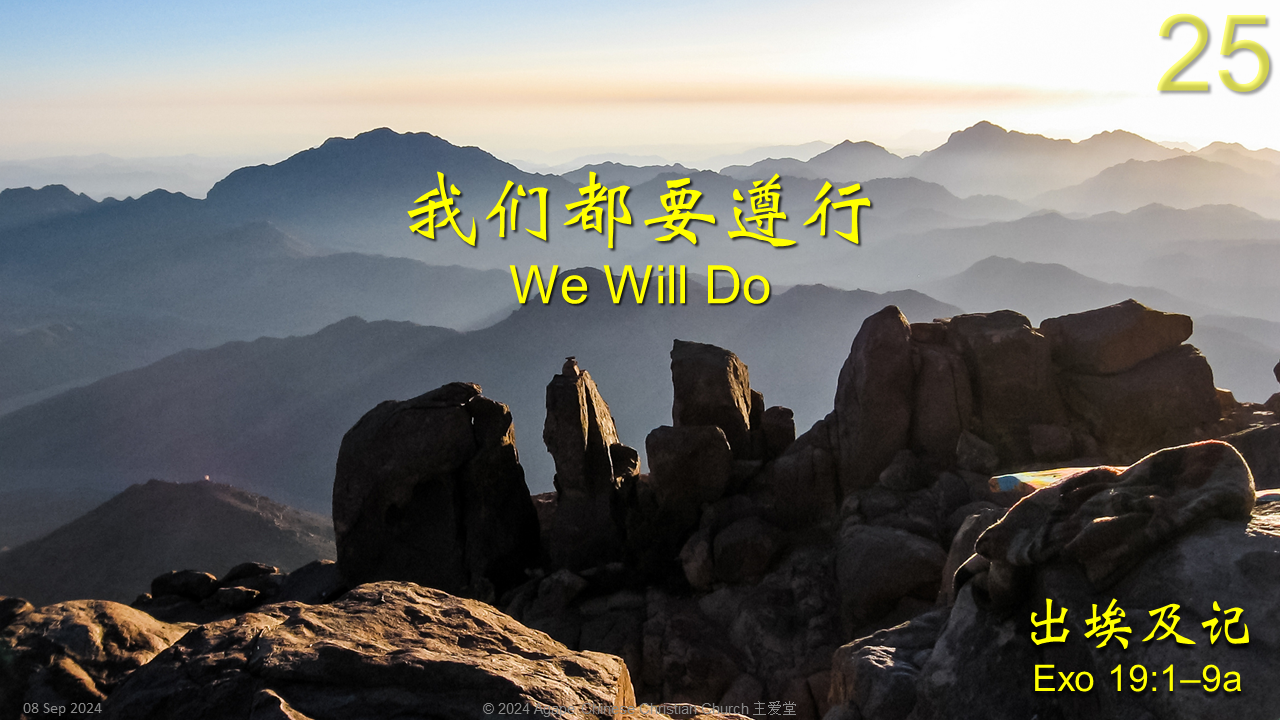我们都要遵行 We Will Do
出埃及记 Exo 19:1–9a
Remember these points
I put these points at the top of my sermon-prep template to remind myself every week:
- Show that main point of passage relates to Jesus and his saving work
- (1 Cor 1:18) A truly gospel-centred message will not be acceptable in a synagogue or mosque
- Did I proclaim the gospel as the headline news of the sermon, rather than as a “by the way…”?
- Unbelievers are called to repent, believe, and be saved
- Believers are encouraged to abandon their old self, renew their minds, put on the new self in Christ
- Preach simple sermons, so that God’s people can see Christ more clearly and love him more dearly
News
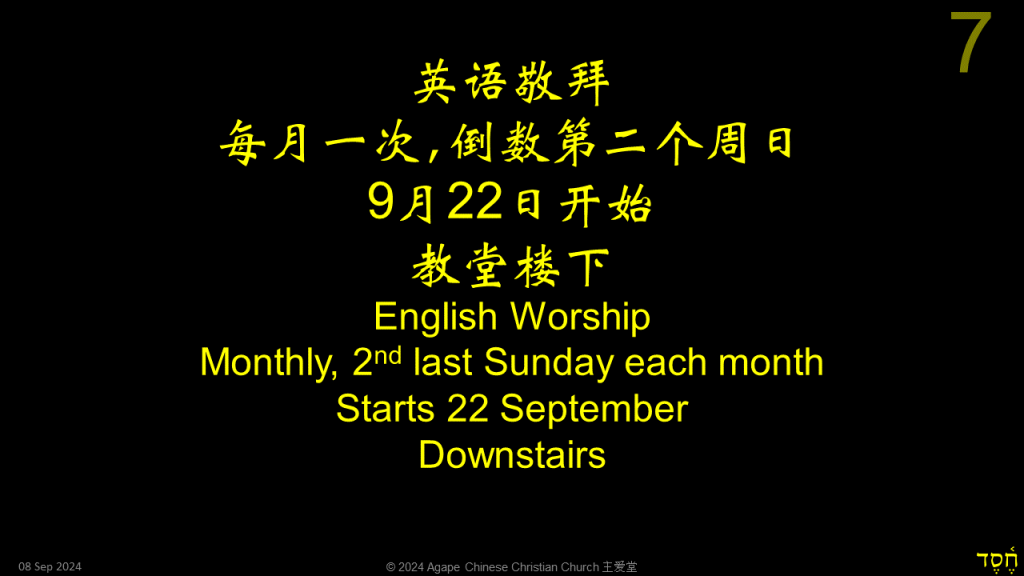
English worship starts on Sunday, 22 Sep (240922), 14:00 downstairs in the church. All are welcome! Invite your friends to join us in worshipping the Lord!
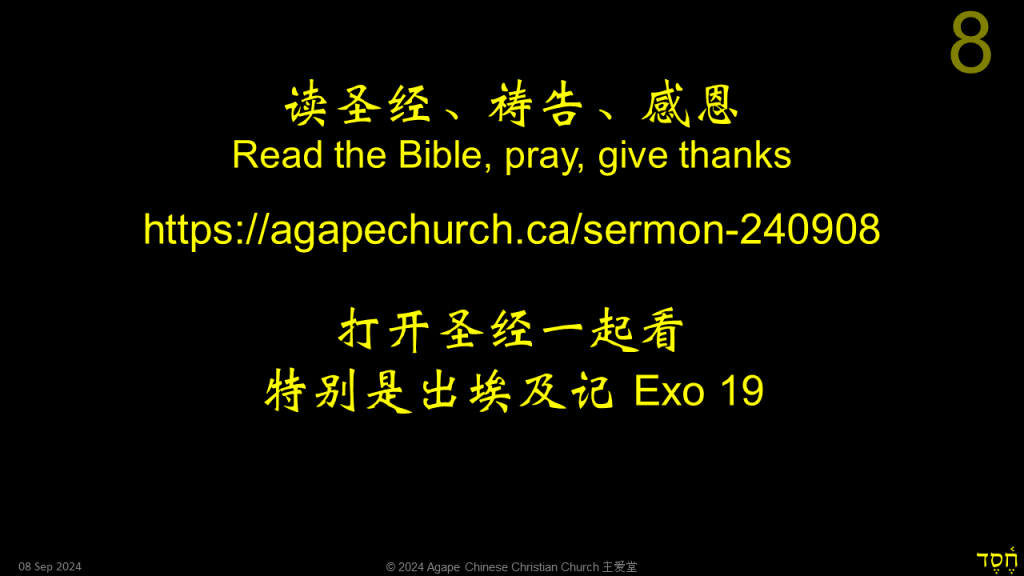
Hook
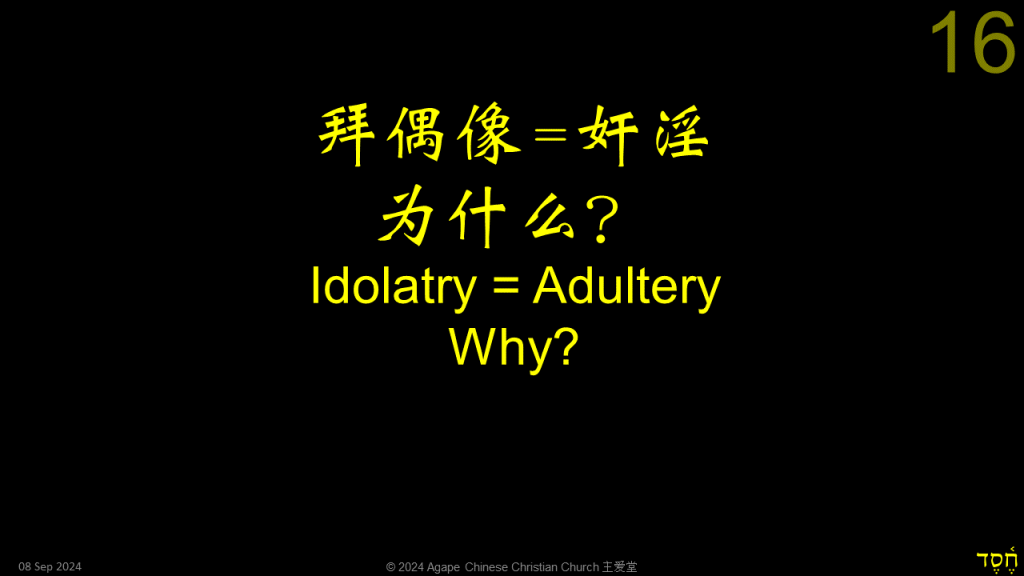
Why is idolatry like adultery?
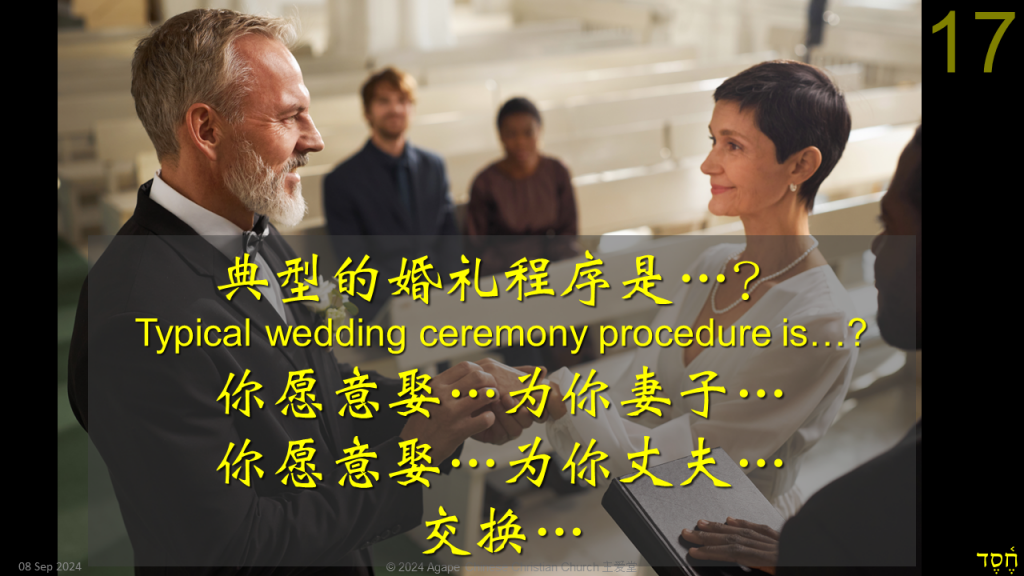
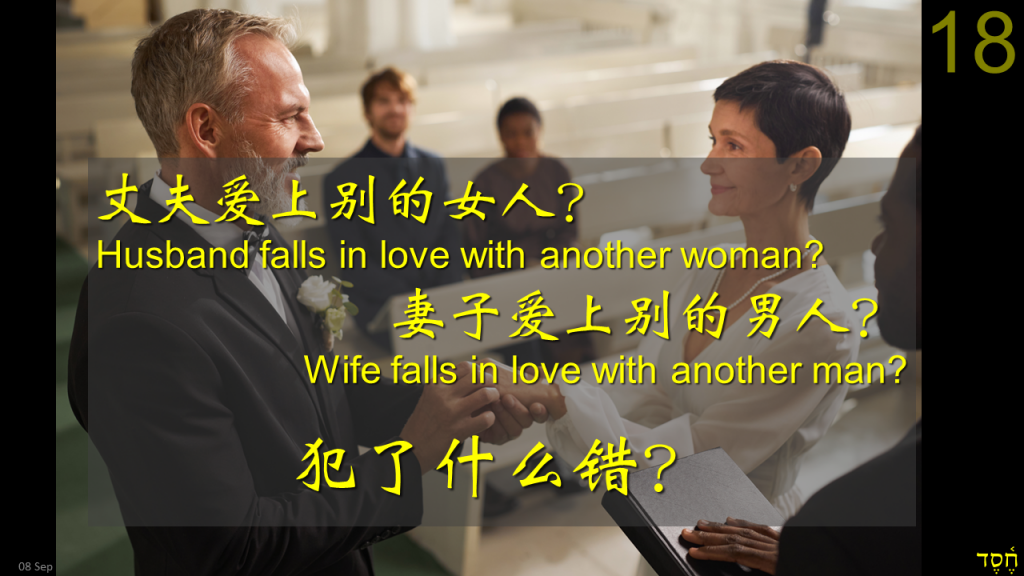

Throughout the Bible, idolatry has always been described as adultery (just read many of the prophets, such as Ezekiel 23, 24, or especially Hosea). Why do you think that is?
What is it about idolatry that makes it like adultery?
Passage
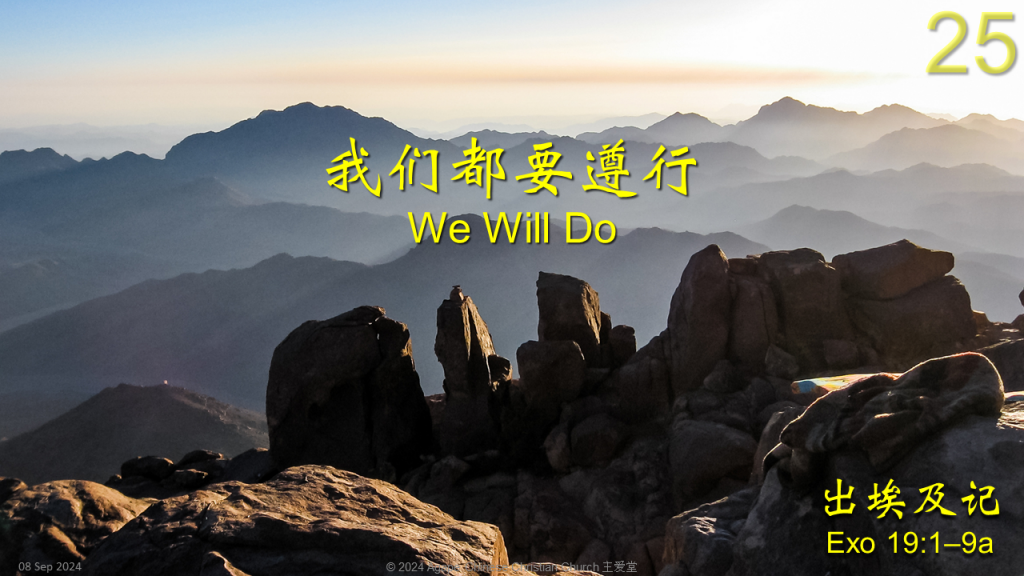
The picture is Jebel Musa (Mountain of Moses in Arabic), located in the Sinai Peninsula (part of modern day Egypt).
It’s One of the possible sites for Mount Sinai.
Why do you think God won’t give us the precise location of Mount Sinai? Or the location of Mount Ararat, etc.?
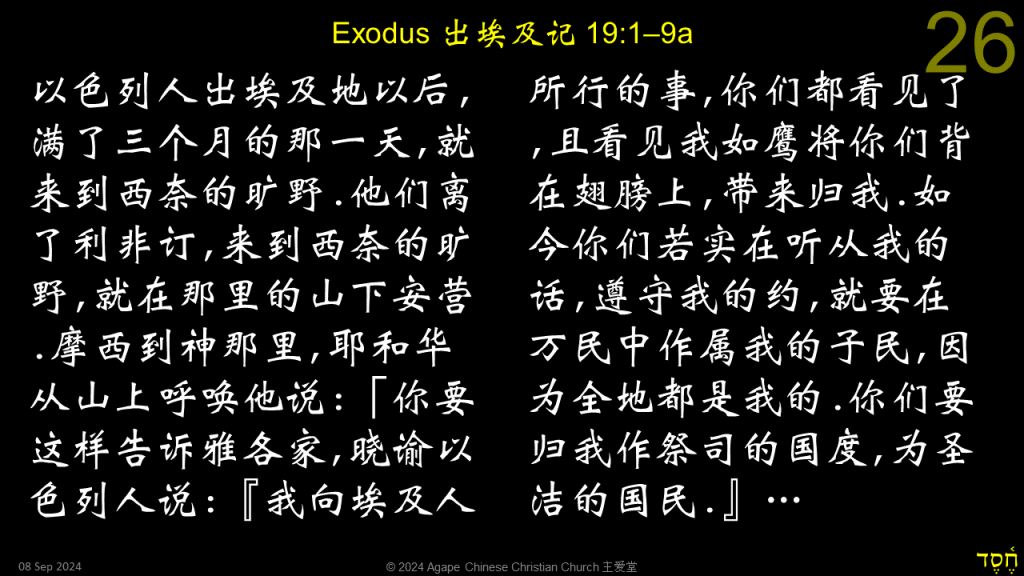
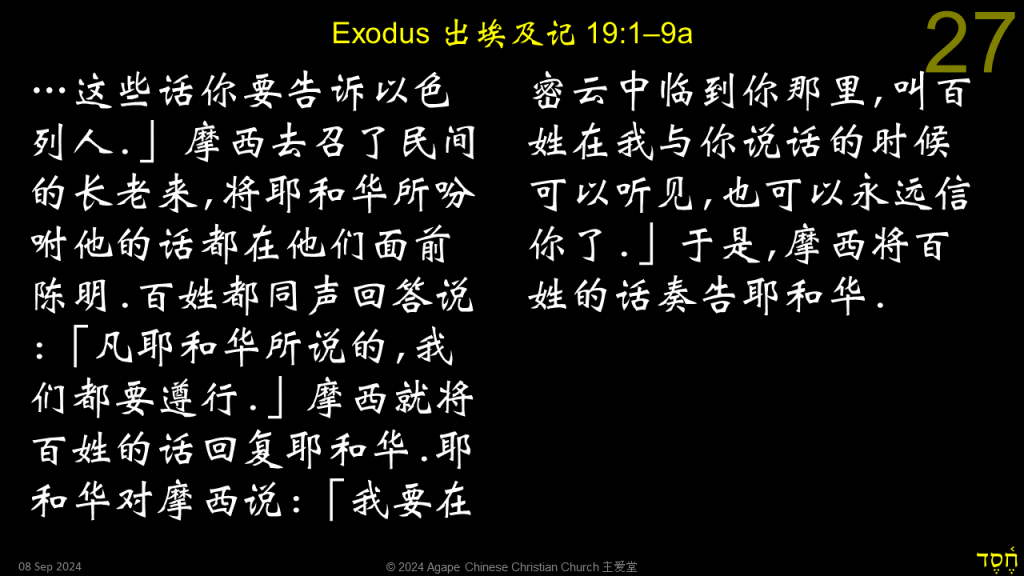
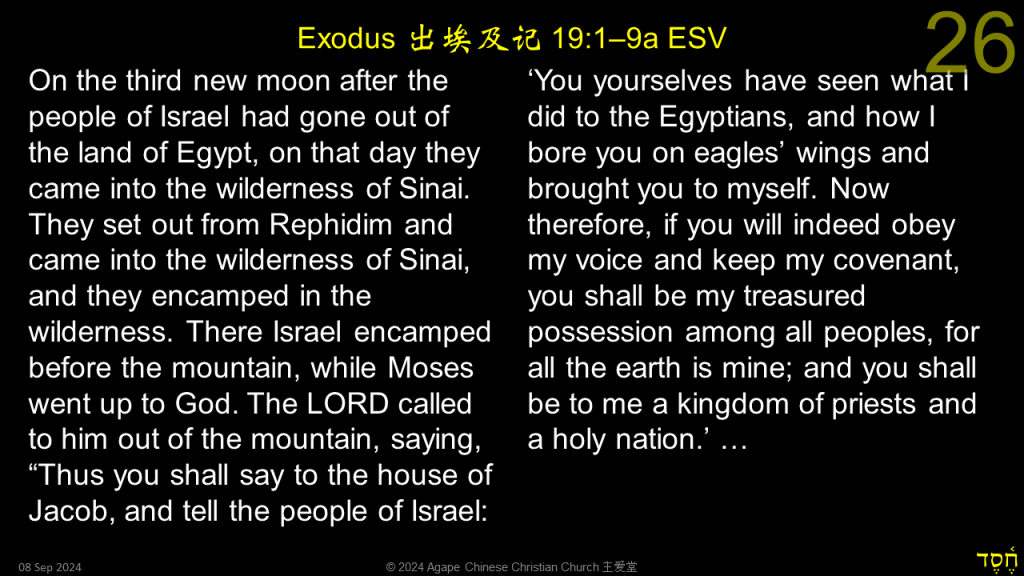
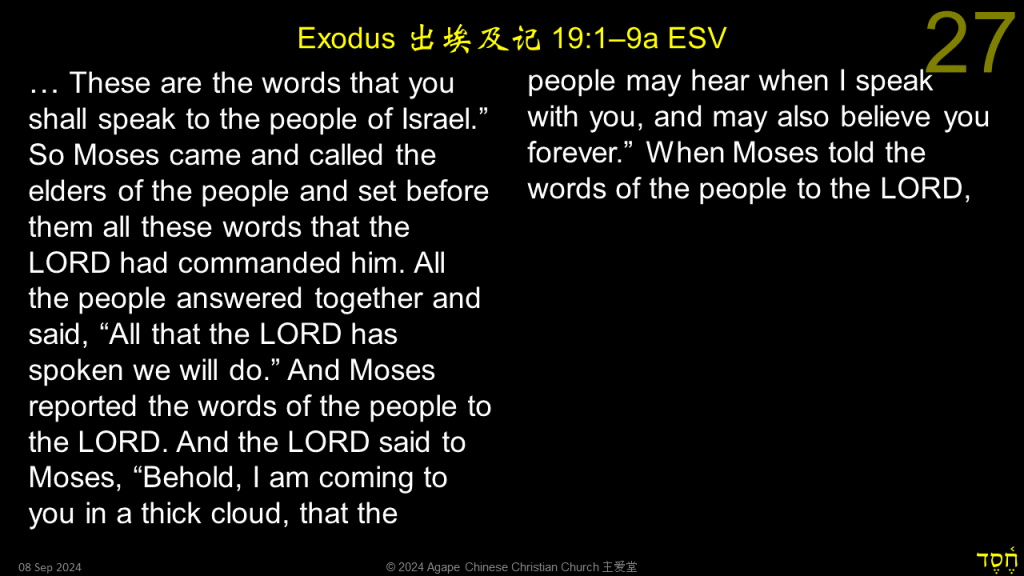
Outline
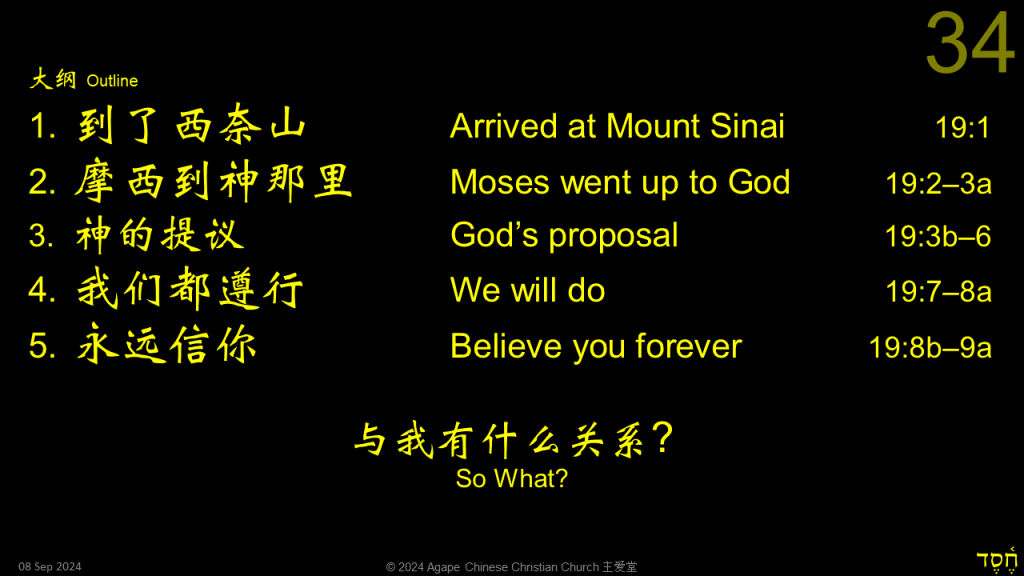
Section 1
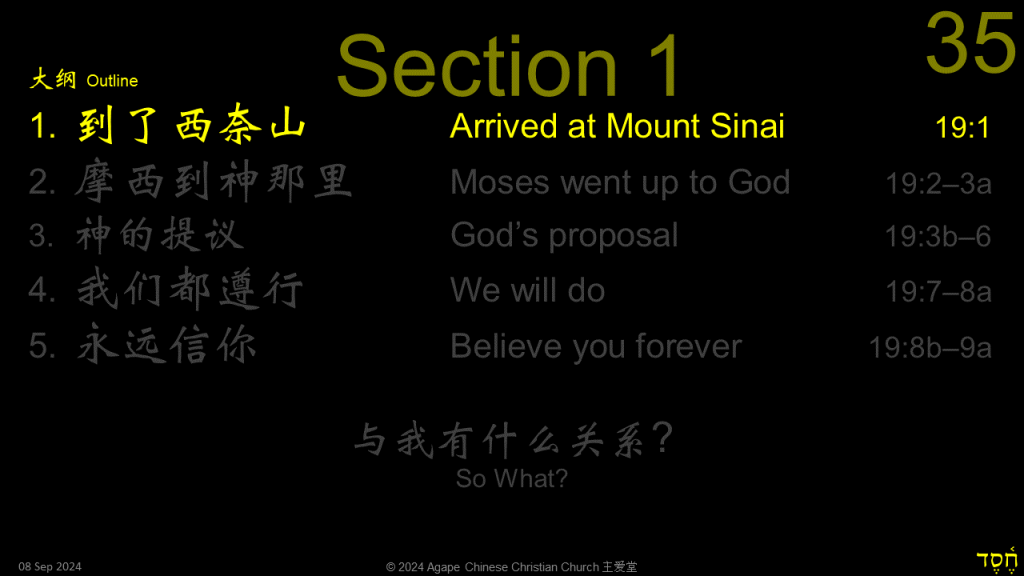
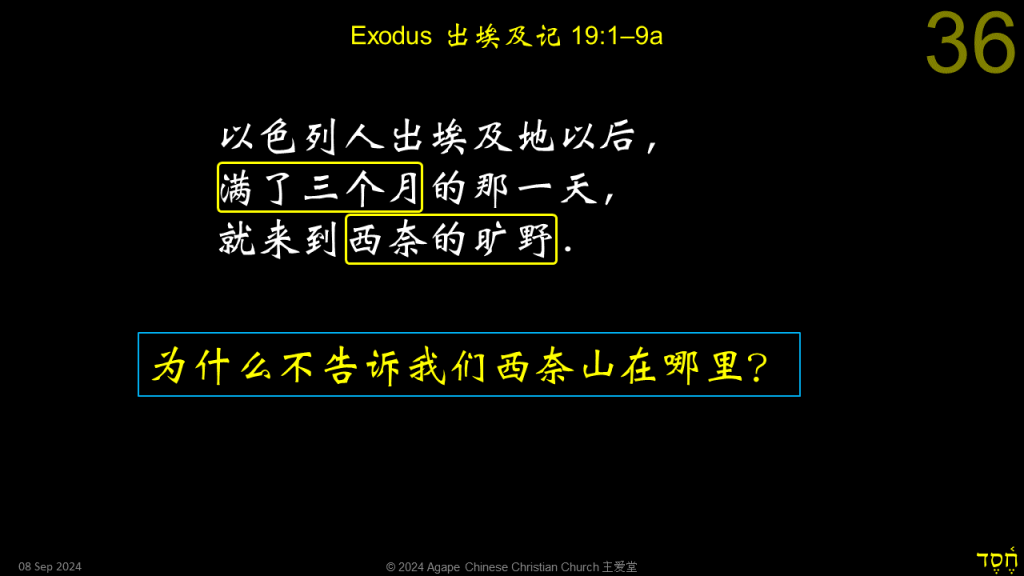
“On the third new moon” means in the third month.
Jewish tradition says that this is start of Shavuot (the Feast of Weeks), 7 weeks after Passover.
This is also the time when the Ten Commandments were given.
For Christians, this is Pentecost (49 days after Easter), when the Holy Spirit descended on believers.
It’s also the start of the Church.
They arrived at the wilderness of Sinai. This is where Mount Sinai is located, though we don’t know exactly where this is.
Section 2
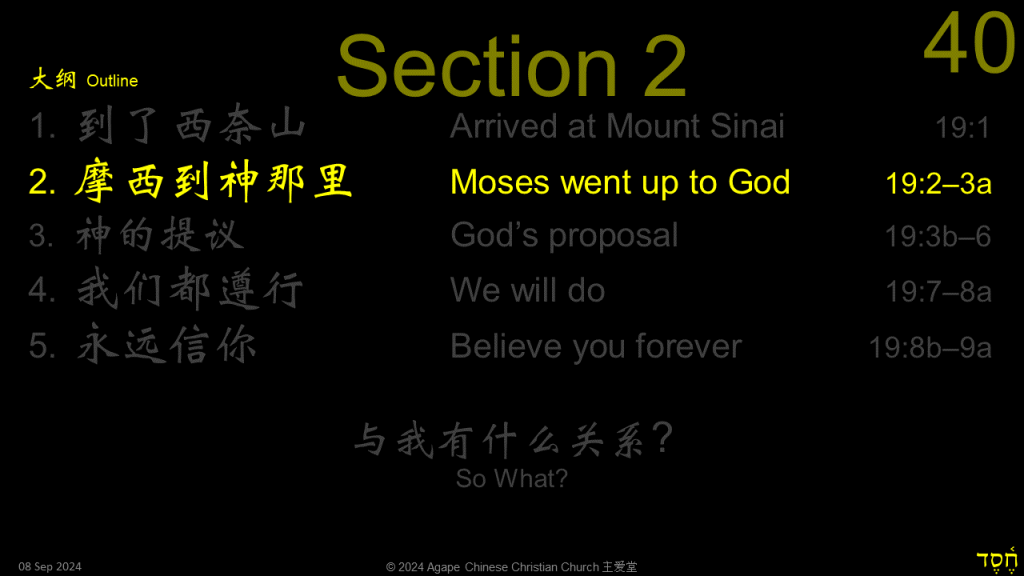
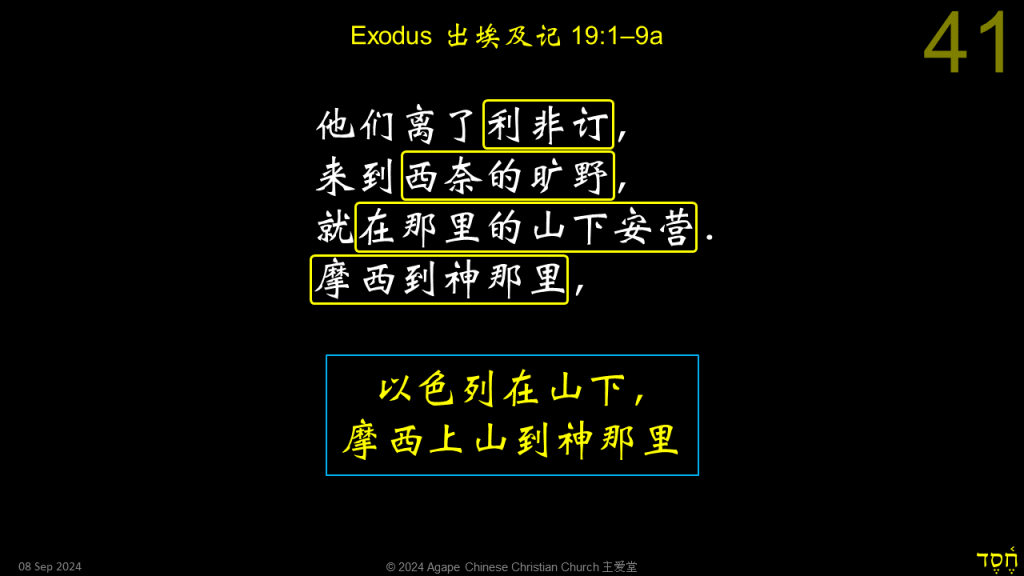
Rephidim was where they camped not too long after the Red Sea crossing. See Exo 17:1.
That’s the place where they found no water, grumbled, etc.
It’s also the place where Amalek attacked them.
So Israel camped at the foot of the mountain, but Moses went to see God.
This description is specifically to contrast what the people did and what Moses did.
“The mountain” is Mount Sinai, the Mountain of God.
Moses was there before (Exo 3:1), when he saw the burning bush.
In Exo 3:1, it was called Mount Horeb, but it’s the same mountain.
Section 3
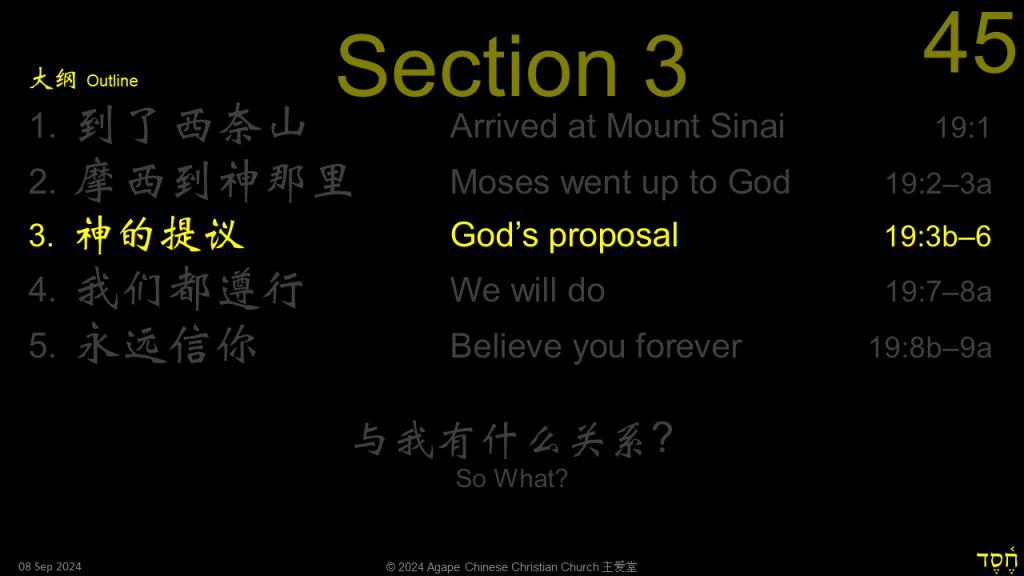
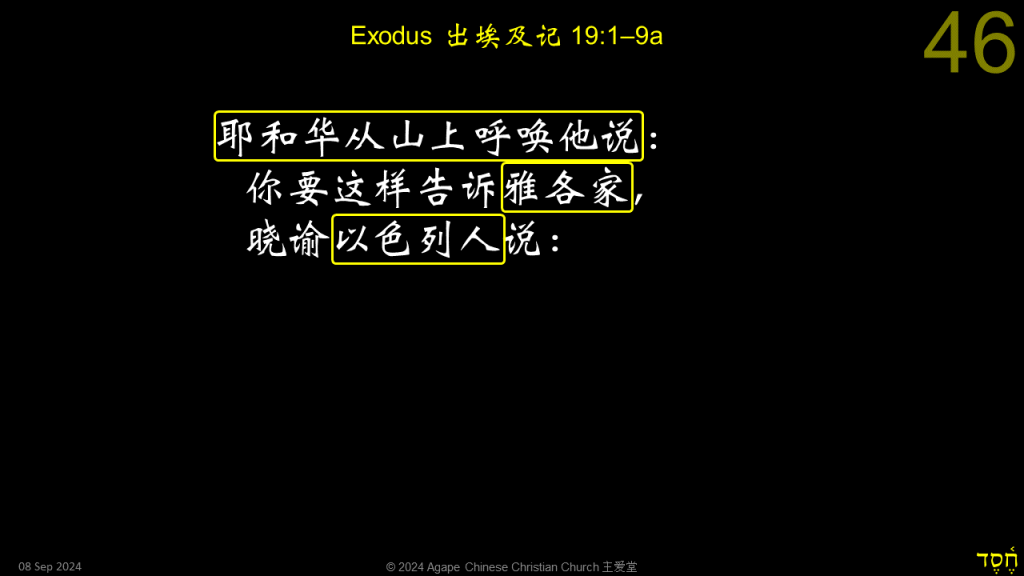
God called out to Moses (not to Israel).
The wording is very poetic, very formal. So whatever YHWH wants to tell the people is very special.
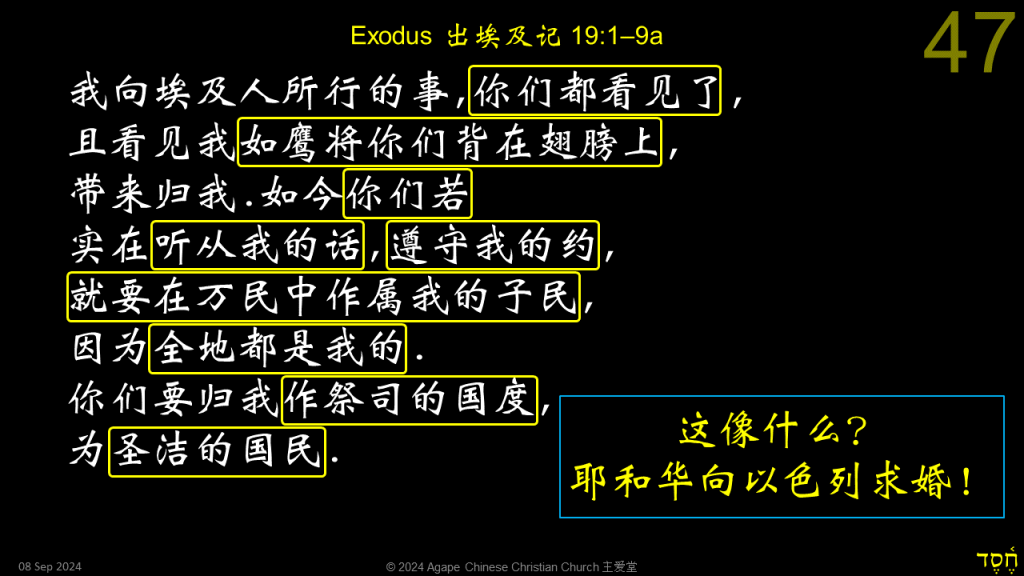
“You…have seen.” They might not know YHWH before, but after all the plagues and the Red Sea, they’ve seen what YHWH did for them.
YHWH delivered (saved) them from Egypt and Pharaoh.
“If you will…” There are conditions attached to what YHWH is telling them.
“Obey my voice” from the ESV is a good translation, as opposed to translations saying “listen to me.”
Listen (or hear) means not just in the auditory sense, but also obeying what was said.
Keep my covenant. We all know how well that turned out!
God was always faithful to the covenant, but Israel wasn’t. We have the same problem today!
They will be special, treasured, possession to YHWH. All peoples belong to YHWH, but Israel will be special.
“Kingdom of priests” means the entire nation will be priests, not just some people given that special role.
Priests minster to the people, standing between the people and God.
If the entire nation are priests, who are they ministering to?
A “holy nation” means a separated nation (that’s what “holy” means).
They live amongst other people, but they are to be distinct, separate, different from those around them.
Doesn’t this sound like what the NT said about the church?
What does this solemn declaration sound like?
It’s like a marriage proposal!
YHWH wants Israel to be his bride!
Other than the language, are there other clues that point to this conclusion?
Look at the story so far:
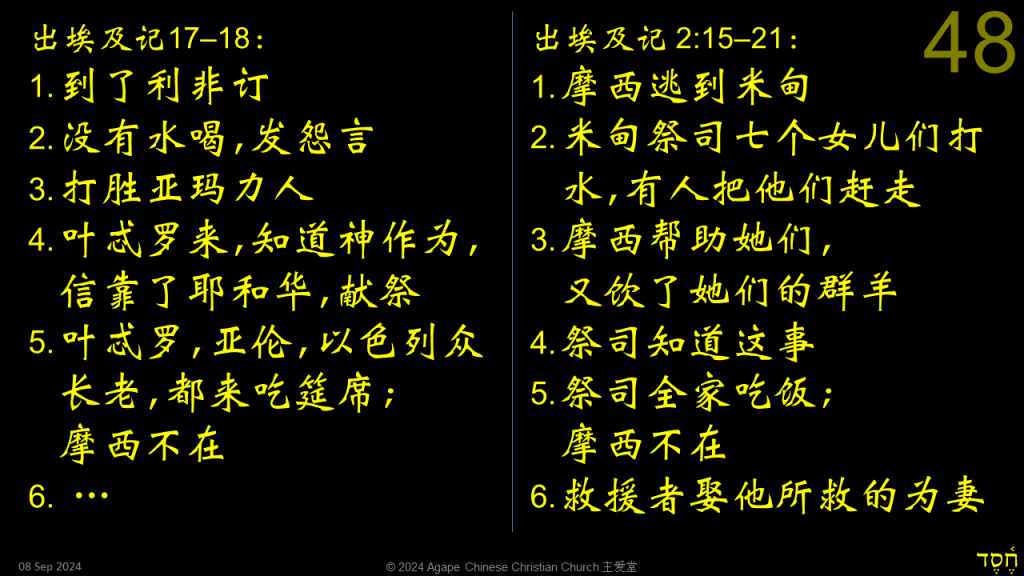
- In Exo 17–18, they came to Rephidim.
- There was no water, the people grumbled.
- Amalek attacked, and the Israelites won (all God’s work, of course).
- Jethro (Moses’ father in-law) came, learned of all the things YHWH did, and believed in YHWH. He also offered sacrifices to YHWH.
- Jethro, Aaron, Israel’s elders, all came to the feast convened by Jethro; but Moses was missing.
This takes us to end of Exo 18. - So what happens next…?
These events so far remind us of an earlier series of events, way back in Exo 2:15–21:
- Moses ran off (from Egypt) to Midian
- The priest of Midian’s (we know him later to be Jethro) seven daughters came to get water, but some shepherds chased them off, so they weren’t able to water their flocks.
- Moses came to their aid, and watered their (the girls) flocks.
- The priest of Midian learned of all this (from his daughters, Exo 2:18)
- Priest and family had dinner, but Moses wasn’t there (Exo 2:20)
- The very next event: marriage of Moses and Zipporah (eldest daughter).
The saviour married the one he saved. (This is from alephbeta.org)
This is why we think a marriage will happen next, and that’s what we see in Exo 19.
Lessons
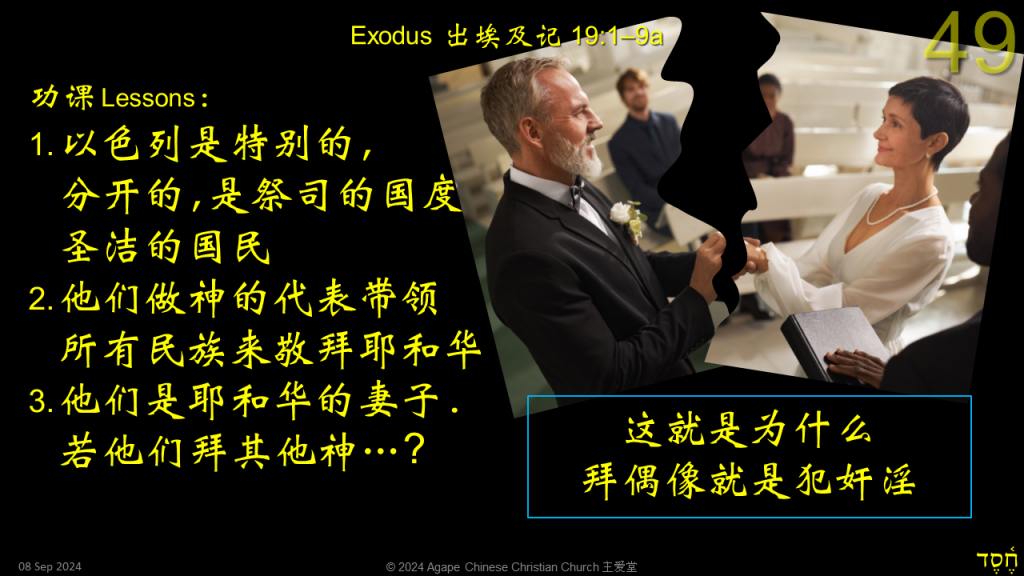
- Israel is special, separate, is a kingdom of priests, a holy people.
- They will be God’s representatives, guiding all peoples to worship YHWH.
- They are the bride of YHWH.
So what happens when they worship other gods?
This is why idolatry is like adultery
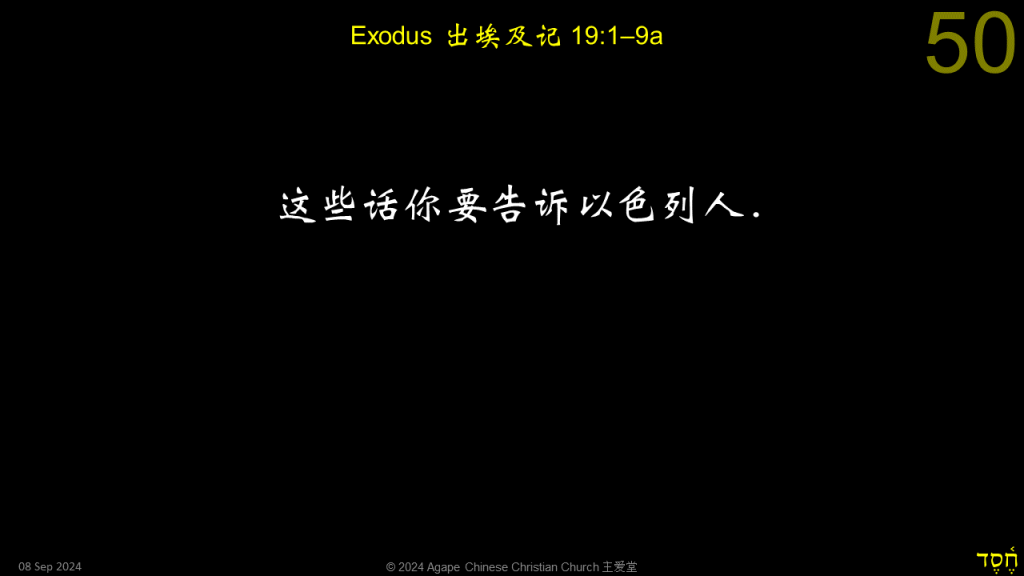
Section 4
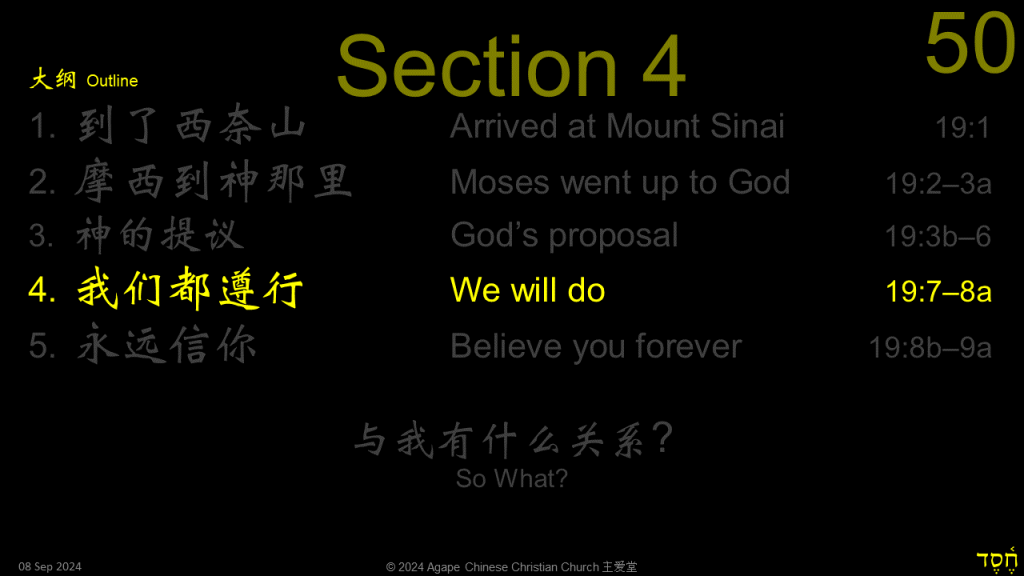
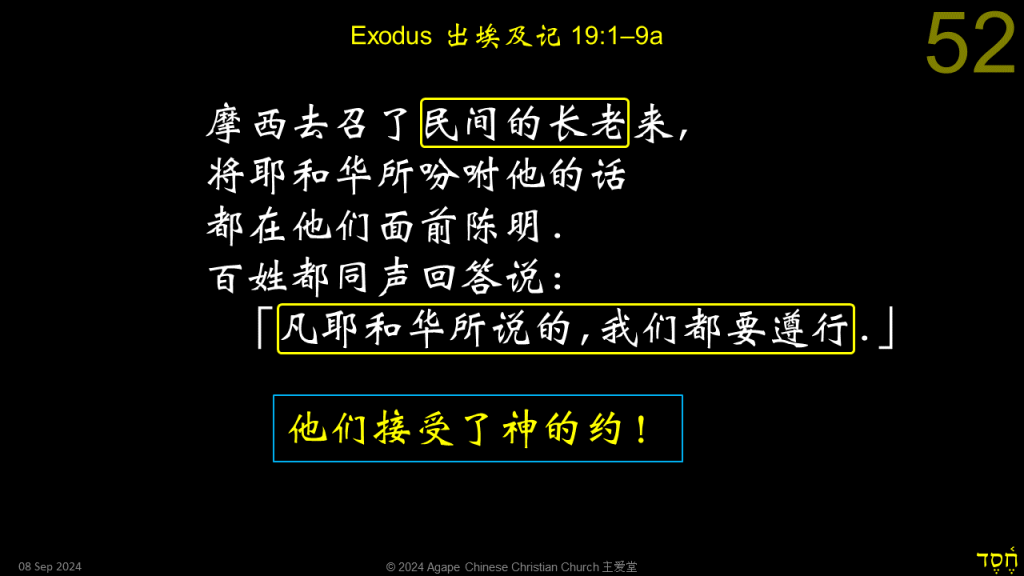
God gave the marriage proposal to Moses, Moses passed it on to the people.
All the elders (the representatives of the people) heard and understood the proposal,
understood what God is asking of them.
“All that the LORD has spoken we will do.”
They have accepted the marriage proposal!
Accepted the covenant that YHWH wanted to establish with them.
Section 5
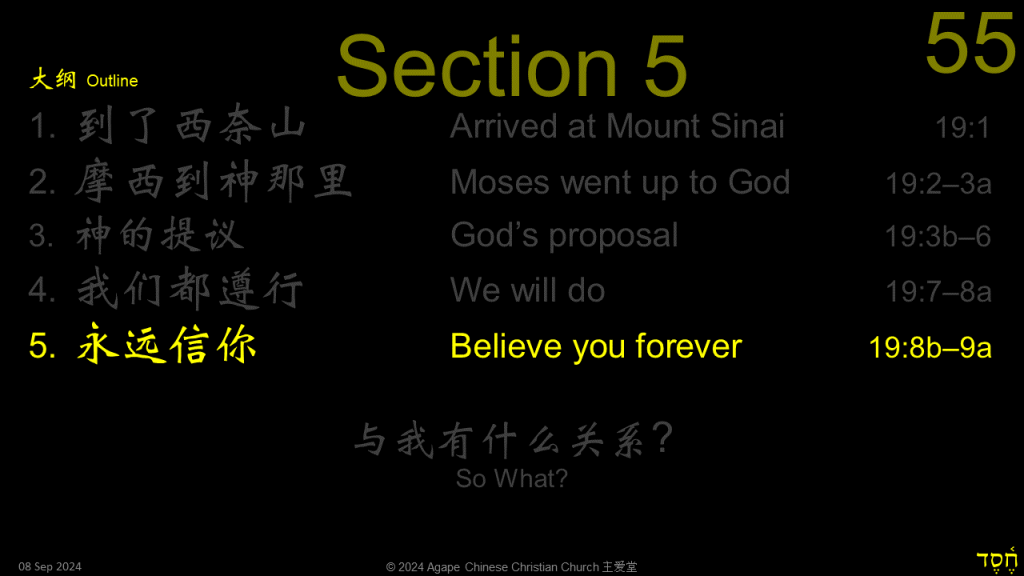
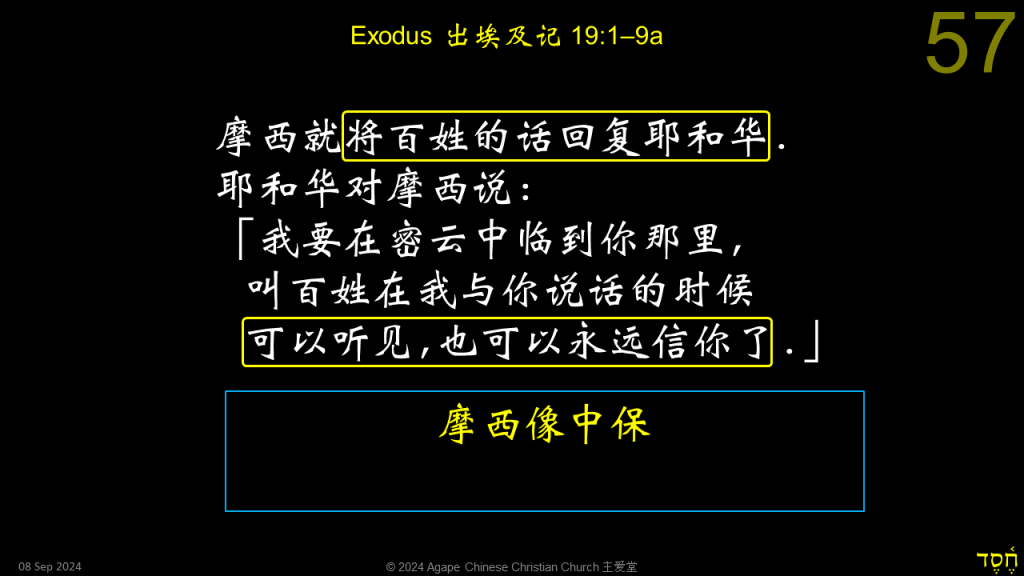
Moses is acting like a mediator, going between YHWH and the people.
Do we have a mediator?
与我有什么关系? So What?
